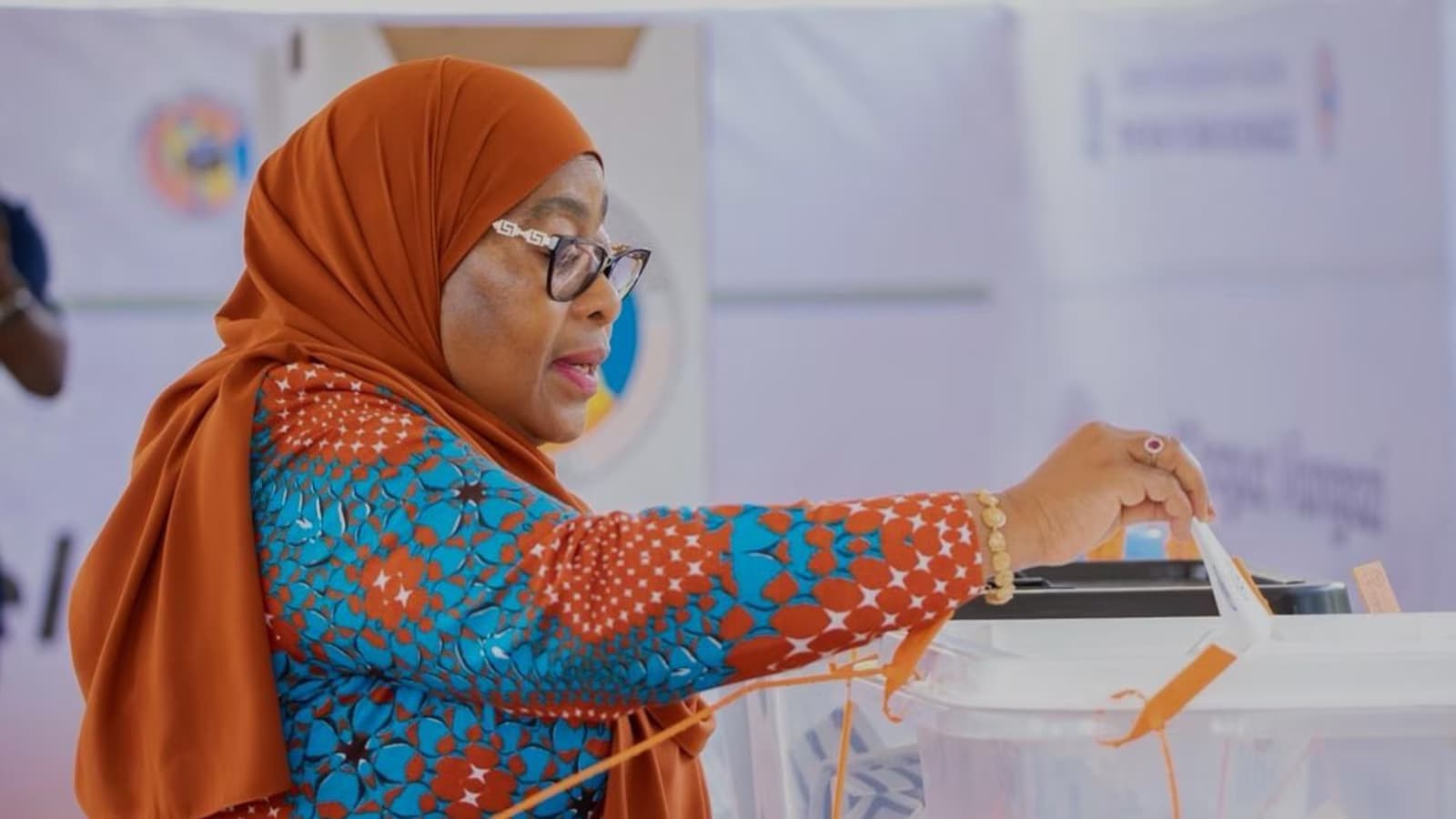We're loading the full news article for you. This includes the article content, images, author information, and related articles.
President Samia Suluhu Hassan’s pro-market reforms and diplomatic reset mark a significant departure from Julius Nyerere's socialist principles, reshaping Tanzania's economy and its role within the East African Community.

DAR ES SALAAM, Monday, November 3, 2025 (EAT) – More than four years into her presidency, Samia Suluhu Hassan is charting a course for Tanzania that increasingly diverges from the foundational ideals of Mwalimu Julius Nyerere, the nation's first president. While publicly committed to Nyerere's vision of unity and self-reliance, President Suluhu's pragmatic economic policies and recalibrated foreign relations represent a significant evolution, prompting a national and regional debate on the modern meaning of Nyerere’s legacy.
This shift is most evident in the economic sphere. Where Nyerere championed 'Ujamaa' (familyhood), a form of African socialism centered on agricultural collectivization and state-controlled enterprise, Suluhu has aggressively pursued foreign investment and private sector growth. Since taking office in March 2021, her administration has overseen a surge in foreign direct investment, with investments reaching $8.6 billion between 2021 and 2023. This has been driven by regulatory reforms designed to improve the business climate. The country's GDP has grown from approximately $69.7 billion in 2021 to a projected $85.42 billion in 2023, with the International Monetary Fund (IMF) forecasting 6% growth in 2025.
President Suluhu’s government has actively courted international partners, securing funding for major infrastructure projects like the Standard Gauge Railway (SGR) and the Julius Nyerere Hydropower Station—a project Nyerere himself envisioned but could not realize. This outward-looking strategy was formalized in May 2025 with the launch of a revised foreign policy framework that places 'economic diplomacy' at its core. The policy aims to use Tanzania's diplomatic missions to promote trade, investment, and tourism, a stark contrast to Nyerere's emphasis on economic self-sufficiency and caution towards foreign capital.
For Kenya and the wider East African Community (EAC), this change has been transformative. Under Suluhu's predecessor, the late John Magufuli, relations were often strained by protectionist policies and trade disputes. President Suluhu, however, has prioritized regional integration. Her state visit to Kenya in May 2021 was a pivotal moment, leading to the resolution of numerous non-tariff barriers. Consequently, bilateral trade surpassed KSh 100 billion for the first time, and officials from both nations continue to meet to harmonize trade policies.
Politically, President Suluhu has also departed from the past. Nyerere's Tanzania was a one-party state, a structure he argued was necessary for national unity in a post-colonial setting. While Tanzania transitioned to a multi-party system in the 1990s, the civic space had constricted significantly under Magufuli. Suluhu has taken steps to reverse this, lifting a ban on opposition rallies in January 2023, unbanning several media outlets, and engaging in dialogue with opposition figures. However, recent developments, including the arrests of critics and a perceived retreat from some reforms ahead of the 2025 elections, have raised concerns among observers about the long-term sustainability of this political opening.
Amidst these policy shifts, the moral and symbolic legacy of Nyerere endures. Revered as 'Baba wa Taifa' (Father of the Nation), his emphasis on unity, integrity, and social equality remains a powerful force in Tanzanian society. This is underscored by the ongoing process for his beatification and canonization within the Catholic Church. The cause, which began in 2005 when Pope Benedict XVI declared him a 'Servant of God', continues to be pursued by the Tanzania Episcopal Conference, reflecting his esteemed status as a model of political holiness and personal integrity.
President Suluhu often frames her administration's actions as a modern interpretation of Nyerere's goals, adapted for a globalized world. She argues that projects like the hydropower dam and investments in education and technology fulfill his dream of a self-reliant, developed nation. The critical question remains whether this new, market-friendly path can deliver broad-based prosperity while upholding the principles of social cohesion and justice that were the cornerstones of Nyerere's Ujamaa. The answer will define not only President Suluhu's legacy but also the future trajectory of Tanzania and its role as a key player in East Africa.
Keep the conversation in one place—threads here stay linked to the story and in the forums.
Sign in to start a discussion
Start a conversation about this story and keep it linked here.
Other hot threads
E-sports and Gaming Community in Kenya
Active 9 months ago
The Role of Technology in Modern Agriculture (AgriTech)
Active 9 months ago
Popular Recreational Activities Across Counties
Active 9 months ago
Investing in Youth Sports Development Programs
Active 9 months ago
Key figures and persons of interest featured in this article